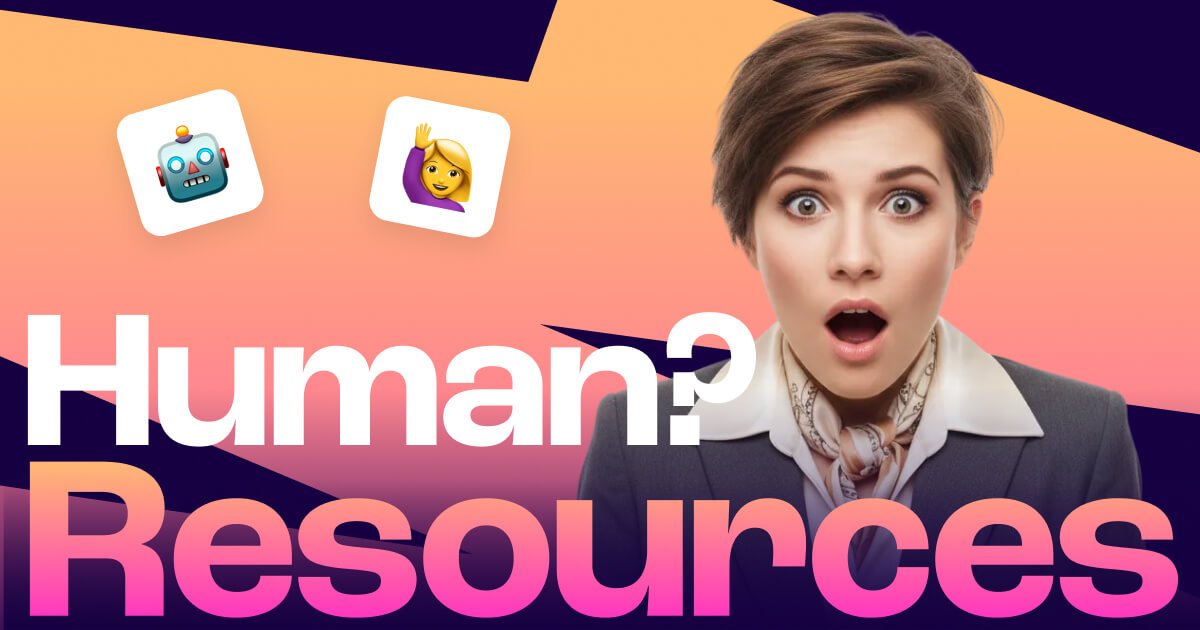
10 Transferable Skills Guaranteed to Get You Hired
Changing careers can feel overwhelming, especially when you’re balancing parenthood and professional ambitions. But if you’ve been managing a 2-year-old, posting engaging TikToks, or handling customer service queries, you’re already sitting on a treasure trove of transferable skills that today’s employers crave.
Transferable skills have never been more important - gone are the days where young people would master a single skill, secure a job and remain loyal to a single company throughout their lifetime…
Gen Z, in particular, is no stranger to job-hopping and career pivots, often driven by their need for growth, flexibility, and digital fluency.
In fact, career changes are becoming more common than ever before. According to a LinkedIn report, Gen Z is switching jobs 134% more than they did pre-pandemic.
So whether you're a mom looking for more flexibility or someone just wanting a change, it’s important to recognize that the skills you already have, either from previous roles, work experience, or quite simply just managing life, are often what companies are looking for!
Let’s dive into 10 of the best transferable skills for career change that can help you thrive in any new role, even if you have ZERO experience! Let's show how your everyday life has already prepared you for success...
1. Communication
Effective communication is more than just being able to talk to people. It’s about adjusting your tone and message based on your audience, whether that’s a customer on social media, your child, or your TikTok followers. Employers value employees who can express ideas clearly, build rapport, and adapt to different communication styles.
Examples of Communication as a transferable skill:
- In customer service roles, your experience handling upset customers—whether in person or via social media DMs—translates directly into jobs in sales, marketing, or any customer-facing position.
- If you’re a TikTok creator, the way you engage with followers shows your ability to communicate in a relatable and engaging way, which can be a huge asset in digital marketing or PR roles.
💡 Actionable Tip: When interviewing, use examples of how you resolved conflicts or communicated effectively in stressful situations. For example, “I turned an unhappy customer into a loyal one by listening to their concerns and offering a personalized solution.”
Communication styles vary from industry to industry. For example, in healthcare or technical support, communication must be clear, concise, and instructional, whereas in marketing or sales, persuasive and engaging communication is key. Make sure the examples you share match the job role you’re applying for - that attention to detail will go a long way.
You should also tailor your application communication style to the job descriptions. If you’re applying for a job in marketing a young fashion brand, your application tone will be very different to applying for a legal role in a financial company.
It’s worth mentioning digital communication skills since remote work and virtual teams rely heavily on emails, Slack, and Zoom. Mastering these technical skills can help you stand out as a great communicator. Not to mention tying communication to leadership skills - all great leaders must be able to articulate their vision and get others to share it.

2. Social Media Engagement
If you’ve been posting TikToks, engaging on Instagram, or handling customer service issues via DMs, you’re already a pro at social media engagement. Today’s employers need staff who can manage online communities, respond to customer feedback, and even promote their brand through digital platforms.
Examples of social media as a transferable skill:
- Highlight your experience in engaging with followers or resolving customer complaints on social media. Explain how this experience equips you for roles in digital marketing, customer support, or community management.
- Quantify your social media success: “Increased TikTok engagement by 30% through interactive content” or “Handled over 50 customer service inquiries weekly via Instagram DMs.”
Actionable Tip: During interviews, mention how your social media presence taught you to stay calm under pressure while responding to public complaints. Frame it as, “Managing feedback online taught me how to handle difficult situations with empathy and tact.”
Companies, especially in retail, tech, and hospitality, are relying more on social media for customer interaction. According to a Help Scout report, 78% of customers who complain to a brand on Twitter expect a response within an hour!
By showing your understanding of how to engage and connect with audiences online, you’ll become invaluable in roles that require social media knowledge. Additionally, employers will appreciate your ability to boost brand awareness or customer satisfaction via digital platforms.
In addition to this, analytical skills will further set you apart if you’re able to quantify your social media impact on the business. For example, how many customers you managed to retain through social media messaging, how many new customers were reached, etc.
3. Multitasking (a.k.a. Mom Skills)
Multitasking is more than just a buzzword—it’s a survival skill when you’re a mom. Juggling nap schedules, managing household responsibilities, and keeping up with social media isn’t easy, but it’s the perfect example of how you can handle multiple projects and responsibilities at once.
Examples of multitasking as a transferable skill
- Highlight how your multitasking skills transfer directly into roles that require strong organization, such as project management skills, administrative support, or event planning.
- Frame your parenting experience as a leadership role: “Coordinated daily schedules for a household, ensuring all tasks were completed efficiently and on time.”
💡 Actionable Tip: Use specific examples in interviews, like managing a toddler’s day while running a side hustle, to showcase how you prioritize tasks and maintain productivity in chaotic environments.
Multitasking is a crucial skill in fast-paced environments like startups or event planning, where employees are expected to wear multiple hats. For example, in project management, handling multiple clients, leading group projects or overseeing several stages of a project at once requires the same level of organization and prioritization that comes with being a parent.
By illustrating how you’ve juggled a demanding personal schedule, you show employers that you can maintain focus and efficiency, even when things get hectic.

4. Problem Solving
If you’ve ever had to quickly stop a toddler meltdown in public or troubleshoot a glitch while filming a TikTok, you’re no stranger to thinking on your feet. Problem-solving skills are all about identifying the issue, coming up with creative solutions, and taking action—something you likely do every day.
Examples of problem solving as a transferable skill
- Explain how problem-solving can be applied to various roles. For example, your ability to quickly adapt during toddler emergencies translates well into jobs that require flexibility and quick thinking, like retail management or tech support.
- On your resume, use real-life examples: “Devised a strategy to resolve tech issues while creating content for social media platforms.”
💡 Actionable Tip: In interviews, describe specific problem-solving scenarios where you had to think fast and come up with a solution. Use the STAR method (Situation, Task, Action, Result) to present these effectively.
Problem-solving is valued in nearly every industry.
In tech, troubleshooting software issues or user problems requires the same kind of analytical thinking as fixing a last-minute crisis at home. In retail, resolving customer complaints efficiently leads to better customer satisfaction.
Highlight your ability to break down issues, assess solutions and implement fixes quickly to solve problems and show employers that you’re ready for challenges in the workplace. Additionally, mention how staying calm under pressure is key to success.
5. Time Management
Balancing time between a toddler’s needs, household duties, and your own side hustles requires excellent time management. Knowing how to prioritize tasks, manage interruptions, and still stay productive is a critical skill for any job, particularly in roles like project management or event planning.
Examples of time management as a transferable skill
- Highlight your ability to manage multiple competing priorities on your resume: “Successfully managed a household and a personal side business, delivering consistent results on tight deadlines.”
- In fast-paced environments like hospitality or retail, time management is crucial, and your experience handling daily life with a toddler proves you can deliver under pressure.
💡 Actionable Tip: Provide a few examples of apps or tools (e.g., Todoist, RescueTime) that have helped you manage time efficiently. Mention these tools in interviews to show your proactive approach to productivity.

Super proud of Monica who followed all our interview tips to correctly showcase her transferable skills and land a 6-figure job!
Effective time management is an essential skill for jobs in healthcare, marketing, and logistics, where tight deadlines and overlapping tasks are common. Employers want to know that you can handle multiple projects without letting anything fall through the cracks.
If you’ve managed to juggle parenting with other responsibilities, make sure to emphasize how you’ve successfully met personal goals while balancing daily life. Offer specific strategies you’ve used to stay organized, such as using digital planners or breaking down large tasks into smaller steps.
6. Digital Literacy
Being part of Gen Z, you’ve grown up in the digital age. Whether you’re running a TikTok account, using a budgeting app, or navigating online tools to organize your life, your familiarity with digital platforms is a highly sought-after skill in today’s job market.
Examples of digital literacy as a transferable skill
- Highlight your experience with popular digital tools, from social media platforms to project management software like Trello or Asana.
- Emphasize your ability to learn and adapt quickly to new digital tools, which is especially important in roles like tech support, digital marketing, or administrative positions.
💡 Actionable Tip: Mention specific tools you’ve mastered, and provide examples of how you’ve used them to streamline processes or improve efficiency in personal or professional settings.
Digital literacy is critical in today’s remote and hybrid work environments. Many companies use collaboration tools like Slack, Google Workspace, or Microsoft Teams, and being proficient with these platforms gives you an advantage.

Familiarity with online learning platforms like Coursera or LinkedIn Learning is also valuable because it shows you’re committed to continuous skill development. Employers are particularly impressed by candidates who stay updated with the latest software trends, especially in industries that rely on automation and data analysis.
7. Creativity
Creating engaging TikToks, planning fun playdates, or coming up with dinner ideas on a budget—all of these are examples of how creativity shows up in your everyday life. Employers value creative thinkers who can approach problems from new angles and bring innovative ideas to the table.
Examples of creativity as a transferable skill
- Showcase your creativity by mentioning specific examples: “Produced high-engagement TikTok content that grew followers by 20% in three months” or “Developed creative playdate activities that also taught my child basic educational skills.”
- Connect this creativity to roles in marketing, design, event planning, or any position that benefits from innovative thinking.
💡 Actionable Tip: In interviews, give examples of creative solutions you’ve implemented, either in your personal life or at work, to demonstrate your problem-solving and innovation abilities.
Creativity isn’t just for artistic roles. In finance, creative problem-solving can be used to streamline operations and reduce costs. In operations, it helps teams identify more efficient ways of doing things.
If you’ve created a solution that saved time or resources at home, present that story as an example of your creative problem-solving in action. Employers love candidates who can think outside the box and bring fresh perspectives to their teams.
8. Event Planning
From organizing playdates to planning family events or even casual meetups with friends, your event-planning experience is more valuable than you might realize. Whether it’s managing logistics or ensuring everyone has a great time, event planning requires a mix of creativity, organization, and communication.

Examples of event planning as a transferable skill:
- Highlight your event-planning experience on your resume: “Planned and executed multiple successful family events and social meetups, managing logistics, budgeting, and guest engagement.”
- Connect this experience to roles in hospitality, corporate event planning, or even HR, where employee events or team-building activities are important.
💡 Actionable Tip: When discussing event planning in interviews, mention how you stay organized with tools like Google Sheets or project management apps to ensure everything runs smoothly.
Event planning skills are in high demand for roles in marketing, public relations, and corporate communications. Your ability to organize and manage every aspect of an event—from securing venues to handling guest lists—translates directly into professional settings.
Highlight any event-planning software or tools you’ve used to show that you’re equipped with both the creativity and technical know-how to succeed in the field.
9. Customer Engagement
If you’ve handled a customer complaint or soothed a toddler mid-tantrum, you know what it takes to engage with people effectively. Customer engagement is about understanding what someone needs and responding with empathy and patience, skills you already possess.
Examples of customer engagement as a transferable skill:
- Emphasize your experience with customer interactions, whether it’s responding to inquiries on social media or helping a friend with an online purchase. This experience can lead to roles in customer service, sales, or account management.
- Highlight how your communication and empathy skills helped resolve issues and improved customer satisfaction.
💡 Actionable Tip: In interviews, mention a time when you turned a negative customer experience into a positive one, showcasing how your skills in emotional intelligence helped de-escalate the situation.
Customer engagement is crucial for retail, tech, and hospitality industries. Companies are constantly looking for employees who can turn a negative experience into a positive one, enhancing brand loyalty in the process.
Your experience handling difficult situations, whether online or in person, gives you a natural advantage in customer-facing roles. Emphasize your ability to communicate calmly, understand customer needs, and find solutions quickly.
10. Resilience
Parenting teaches resilience like nothing else. You’ve learned how to stay patient during challenging times, bounce back after difficult days, and keep moving forward despite obstacles. Employers value resilience because it means you can adapt to setbacks and keep a positive attitude in stressful situations.
Examples of resilience as a transferable skill:
- Talk about the challenges you’ve faced in life or work, and how you overcame them. Frame these as examples of your ability to persevere in tough situations.
- Connect resilience to roles in high-pressure environments, such as healthcare, retail, or any customer-facing role.
💡 Actionable Tip: In interviews, focus on a specific example where resilience paid off, like handling a particularly difficult work situation or personal challenge, to demonstrate your ability to thrive under pressure.
Resilience is critical in remote work environments where employees need to stay motivated despite isolation or technical difficulties. It’s also a major asset in healthcare and hospitality, where unexpected challenges arise frequently. Employers value individuals who can stay calm under pressure and remain solution-focused.
If you’ve bounced back from setbacks or maintained a steady hand in stressful situations, make sure to share these stories as examples of your resilience.
Ready to put your transferable skills to work?
Making a career change can feel intimidating, but you already have the skills you need to succeed!
Whether you’re handling social media, planning events, or just surviving the daily chaos of parenthood, your life experiences have given you a strong foundation of transferable skills to take with you down any career path.
Don’t underestimate your value—take the leap, embrace these strengths, and know that you’re more than ready to step into your next role.
Oh, and did we mention that Paybump’s resume templates, cover letter templates and interview tips show you EXACTLY how to present those transferable skills that will land you your next job? Check them out here!
FAQS
What are transferable skills?
Transferable skills are abilities and competencies that can be applied across various jobs and industries, such as communication, problem-solving, and leadership.
Why are transferable skills important for career changers?
They enable individuals to adapt to new roles and industries by leveraging existing strengths, facilitating a smoother transition during a career change.
How can I identify my transferable skills?
Reflect on your past experiences, both professional and personal, to pinpoint skills that were consistently valuable, such as teamwork, adaptability, or project management.
How do I highlight transferable skills on my resume?
Incorporate them into your resume summary, work experience, and skills sections, providing specific examples of how you've applied these skills in various contexts.
Can transferable skills compensate for a lack of direct experience in a new field?
Yes, emphasizing transferable skills can demonstrate your potential to succeed in a new role, even without direct experience, by showcasing relevant competencies.
How can I develop new transferable skills?
Engage in continuous learning through courses, workshops, volunteering, or taking on new responsibilities that challenge you to acquire and refine versatile skills.
What are some examples of transferable skills?
Examples include communication, leadership, problem-solving, adaptability, teamwork, time management, and critical thinking.
Incorporating these FAQs into your article can provide valuable insights to readers and enhance your content's relevance in search engine results.






